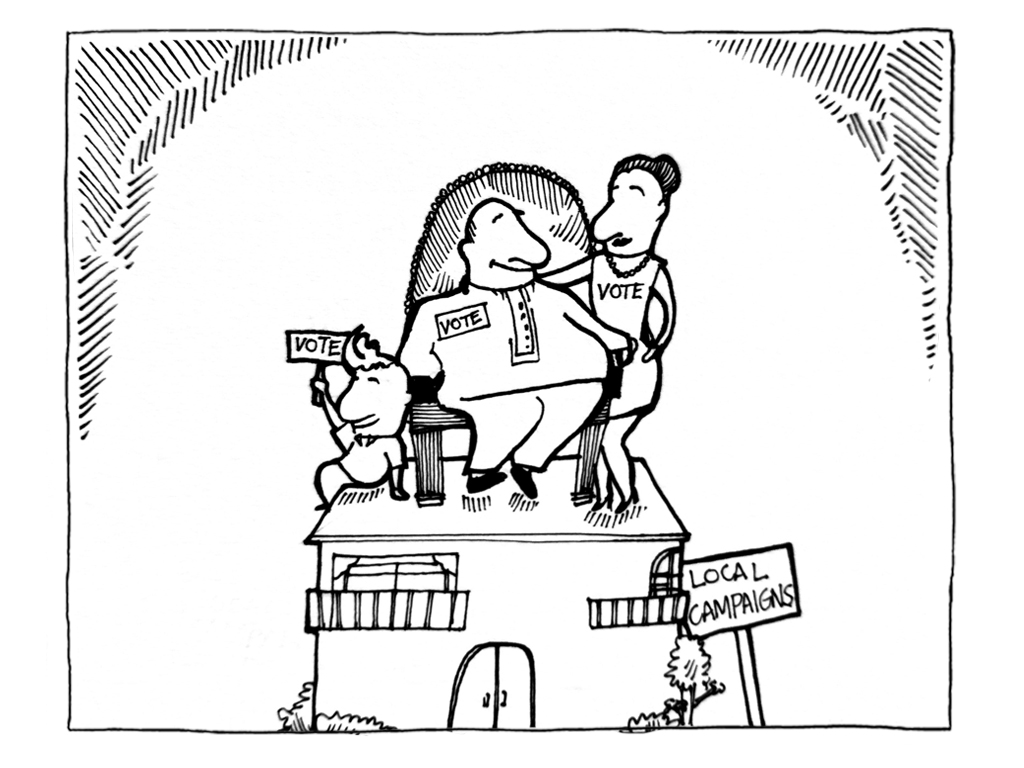This Week in Media (March 28 to April 1, 2022)
Economic crisis continues as local election campaigning begins
COVID-19 SEEMS to have receded as a government concern, but other problems have made life for most Filipinos as difficult as ever.
Since March 1 when government lowered restrictions to Alert Level One, the daily count of cases have remained below 1,000. The most recent projection by the Department of Health (DOH) for the coming months is from 70 to 268, as government encouraged economic activities while calling for the observance of minimum health measures. But vaccination targets remain unfulfilled in certain areas.
The sudden spike in the cost of living diverted media attention from the pandemic to the spiraling costs of petroleum products and government’s inability to do anything about it. Having decided against suspending excise taxes on fuel, the administration has so far failed to provide the suffering public any relief other than the promise of fuel subsidies and financial aid.
Media reported the major issues of the week: the still unreleased fuel subsidies; the rising costs of produce, the smuggling of vegetables that has reduced the incomes of local farmers; and the looming threat of summer power outages despite power fee hikes which could impact the elections in May with power black-outs.
On top of it all, Taal Volcano spewed out a cloud of ash on March 26, compelling 5000 residents in threatened areas to evacuate. Reports referred to the Philippine Institute of Volcanology and Seismology (Phivolcs) which said that so far, Taal is not acting as though it would reprise its 2020 eruption.
Pressing matters
Reports questioned concerned officials from the LTFRB, Department of Agriculture, Department of Energy, Commission on Elections, Meralco and National Grid Corporation, pressing for answers to various crisis issues and reporting assurances of swift and appropriate action.
News reports on Duterte’s talk to the nation on March 29 did not get much from the Chief Executive on the fuel crisis or the price increases it has caused. Reports quoted Duterte’s accusations against alleged troublemakers, including supposed communists in Congress, and wealthy individuals and groups who have gained seats in the same body by way of the party-list system. He also called out the Bureau of Internal Revenue for its alleged failure to collect estate taxes, but did not name names.
Duterte clarified in an NTF-ELCAC gathering in Cebu this week that he is not endorsing any presidential candidate, despite the Cusi faction of his party PDP-Laban’s endorsement of Ferdinand Marcos, Jr.
Duterte did not react to another incident involving a Chinese Coast Guard vessel in Scarborough Shoal. The Philippine Coast Guard (PCG) reported “close distance maneuvering” on the part of the Chinese vessel, risking collision with a PCG vessel early this month. The PCG made the incident public only on March 27. Hermogenes Esperon, National Security Adviser, announced on March 29 that Manila has filed a diplomatic protest against Beijing. But Duterte’s silence failed to make the news.
Elections update
Unpaid real estate taxes have also been the subject of campaign talk among presidential candidates who speculated on the public services and benefits PHP203 billion can support. The sum is exactly what has been unpaid by the Marcos family for decades. Vic Rodriguez, Marcos Junior’s spokesperson, insisted that his candidate’s rivals are only politicizing the issue as it remains pending in court. But several reports have followed the evidence trail all the way to the Supreme Court documents saying it became final and executory in 1999. Media have not gone back to the Marcos team for its response.
Meanwhile, campaigning for local posts has commenced. Media followed the first salvos by calling attention to the same family names and political dynasties in the running. Local politics generate more heat in certain areas, and the mix can be volatile.
Print and TV accounts reported a shooting incident and a two-day standoff between the police and the security staff of the vice mayor of Pilar town in Abra this week. Local police said a vehicle with the bodyguards of Vice Mayor Jaja Josefina Disono, who is seeking reelection, evaded a checkpoint and sped off to Disono’s residence. Disono claimed in a belated media interview that the police ambushed her men. However, 12 of her staff surrendered to the police, and Disono herself later turned over 14 small and large firearms that she and her husband own. A member of Disono’s staff was killed and two policemen were injured.
Abra police have hinted that the incident may be an indication of the return of private armies in the province. Media recalled the violence of Abra politics which has caused the area to be included in Comelec’s list of hotspots during elections.
Vote-buying
Comelec has finally recognized the challenge of vote-buying. But its response of creating a task force headed by Commissioner Aimee Ferolino raised eyebrows. The media recalled that Ferolino was among those who decided to dismiss the petitions to disqualify Marcos, Jr., as they recorded the assurances of her commissioner colleagues that she is fit for the job. No reporter dared ask, “What job?”
Again, CMFR cheered reports on the work of election watchdog organizations which have warned against outdated voter lists, among other problems. Comelec acknowledged the need to update voter lists, but it seems the process needs the cooperation of other agencies. Journalists should ask why keeping voters lists updated is not part of Comelec’s routine work between elections.

Leave a Reply